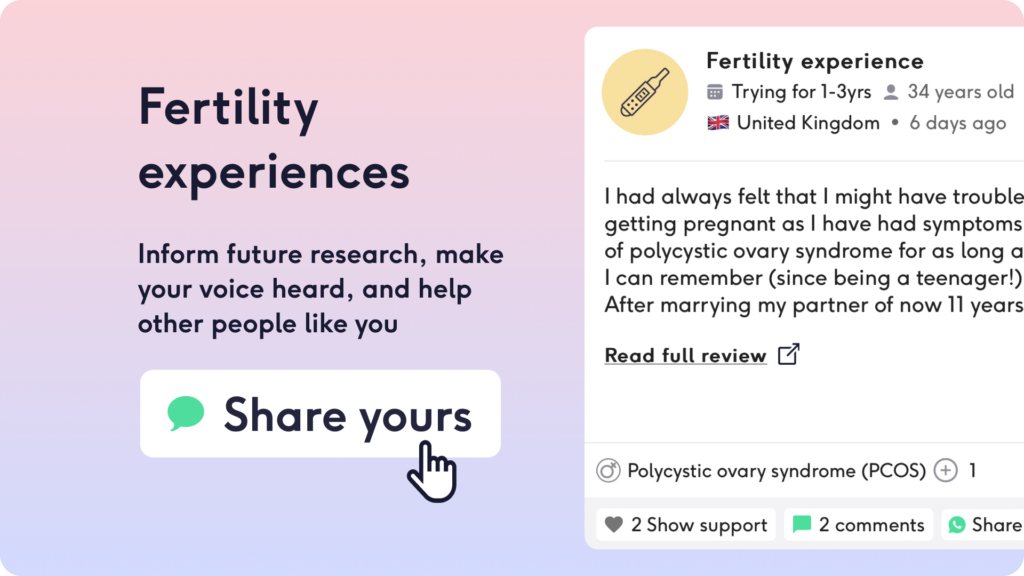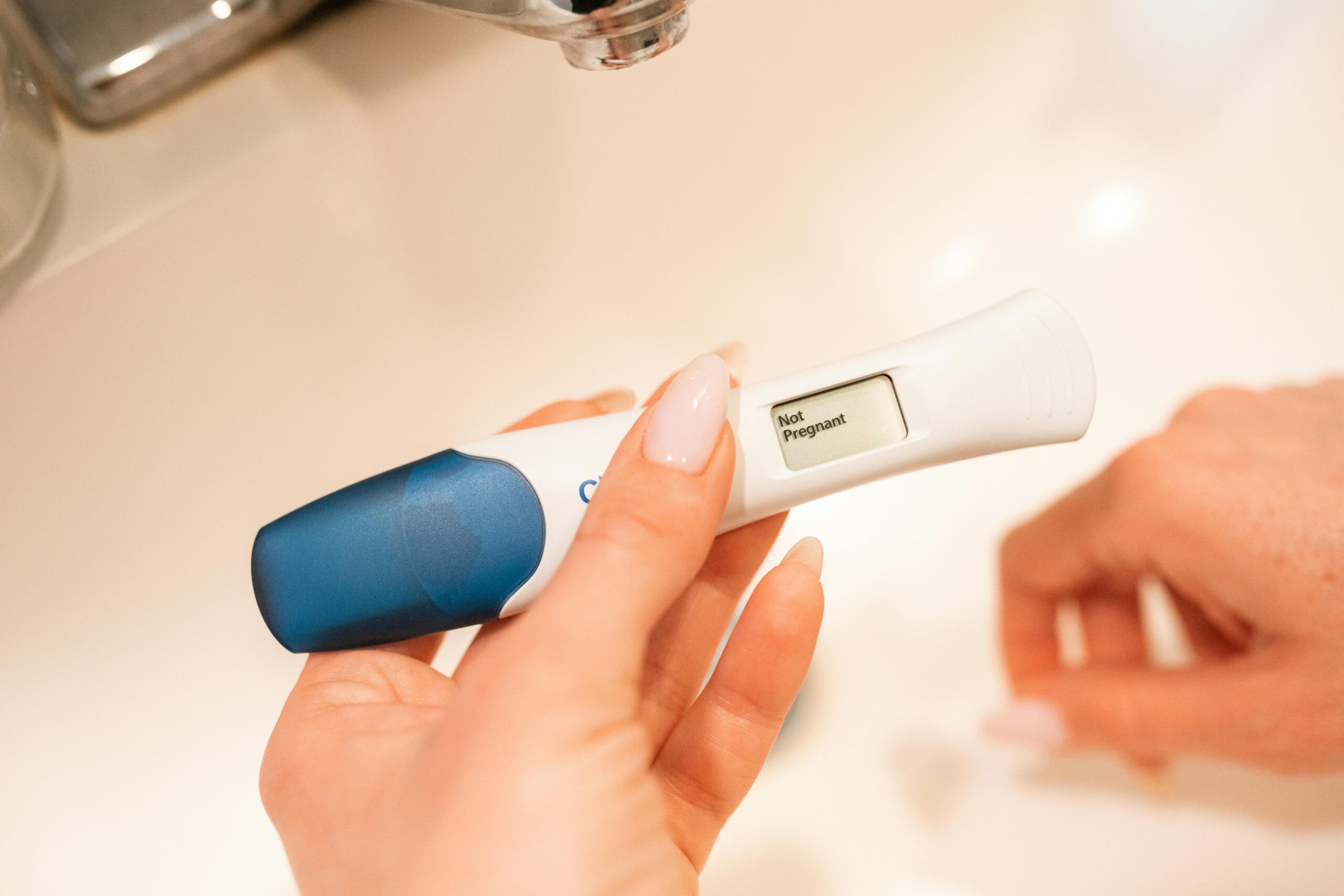
Tips from a doctor: How to increase your fertility
What's the lowdown?
Simple lifestyle changes can improve your fertility
Timing and frequency of sex are important
Ovulation tests can effectively enhance your fertility and boost chances of success
Vitamin D and folic acid are essential for all women trying to conceive
What does TTC mean?
Trying to conceive (TTC) means that you and your partner are actively trying to get pregnant. We know this involves much more than simply having unprotected sex and can be a physically and mentally challenging journey. Sharing experiences can be incredibly helpful; check out our trying to conceive platform and you’ll find that you’re not alone, no matter what you’re going through.
While some women are fortunate enough to fall pregnant within a few months, others can be trying for much longer. Although we can’t specify an exact timeframe, we do know that more than 80% of couples, with no pre-existing fertility problems, usually conceive within 12 months if they’re having regular unprotected sex. For more on this, check out our detailed blog on how long it actually takes to get pregnant.
Why is it important to understand your menstrual cycle?
Conception is more likely to happen if you have sex around the time you ovulate (when a mature egg is released from the ovary.) The British Fertility Society highlights that the chance of pregnancy is 26% if you have sex two days before ovulation, dropping to 1% if sex occurs one day or more after you’ve ovulated1. If you have a 28-day cycle, an egg will be released around 2 weeks before the start of your next period. Otherwise, to predict your ovulation date, you can subtract 14 days from the length of your cycle, or find an ovulation calculator online. Bear in mind that this is only an estimate, so it’s best to have sex regularly for a few days before and after to maximise your chances of success.
What does regular unprotected sex actually mean?
Don’t fall into the trap of limiting sex to try to ‘save sperm’. The latest fertility guidelines recommend couples wanting to conceive should have sex every two to three days, without using contraception2. That being said, having sex too often can lead to burnout; it’s important to find a happy medium that keeps sex joyful and stops it from becoming a chore! There’s no evidence to support a favoured sex position, so just stick to what feels good and what you and your partner enjoy.
What about ovulation tests?
Our fertility hormones luteinising hormone (LH) and follicle stimulating hormone (FSH) fluctuate throughout the menstrual cycle and are responsible for some of the changes we might notice around the time of ovulation. Cervical mucus will often increase and become clear and slippery just before ovulation (think egg whites!) making it easier for sperm to pass through. It will be dryer and thicker at other times of your cycle. Due to the hormone progestogen, our basal body temperature (BBT) also rises after ovulation, usually by half a degree. Some women also say their sense of smell increases, but this is a less reliable indicator.
Bodily changes are subtle and easily missed, so understandably some women might want the extra reassurance that an Ovulation Predictor Kit (OPK) provides. These tests are similar to a pregnancy test but instead of detecting the pregnancy hormone HCG in urine, they detect LH. LH surges 24-36 hours before ovulation occurs and remains elevated for 14-27 hours afterwards. This rise in LH triggers the release of an egg from the ovary. No test is 100% accurate but OKPs come pretty close; they can help you to increase your odds of pregnancy by identifying when conception is most likely to occur and timing sex accordingly3. With so many different brands available, the amount of choice can make it seem overwhelming, but the essential function remains consistent across most kits. Just remember to follow the exact instructions for the test that you buy, as they are all slightly different.
What can you do to improve your fertility?
Fertility issues are thought to affect one in six couples in the UK4. Age, genetics, diet, alcohol, stress, activity, weight and caffeine can all impact our ability to conceive. Some factors, like our age and DNA, are out of our control – but we do have the power to make simple lifestyle changes to get our fertility back on track. These include:
🍻 Cutting out alcohol5
🚭 Stopping smoking6
⚖️ Maintaining a healthy BMI (a measure of whether you are a healthy weight for your height) of between 19 and 257,8 ,
🏃 Exercising regularly (but avoiding excessive or extreme workouts)9
🧠 Managing stress10
☕ Limiting caffeine to 200mg per day11,12 ,
🥦 Eating a varied diet rich in wholegrains, legumes, fruit, vegetables and unsaturated fats (ie. lots of olive oil and avocado!)13,14,15
💊 Supplementing with 10 micrograms of vitamin D daily16
What other supplements do you actually need?
Taking folic acid daily for at least 3 months before you get pregnant (and for the first 12 weeks of pregnancy) is essential to reduce the risk of your baby developing a neural tube defect such as spina bifida. For most women, 400 micrograms is required, but always check with your doctor as some women will require a higher dose of 5mg per day. We can get most other vitamins in sufficient quantities from food, so additional supplements are not necessary. Some vitamins, like vitamin A, can be harmful in pregnancy and are best avoided.
For those of you with PCOS, Dr Melanie Davis-Hall gives us the scoop on whether also supplementing with inositol can regulate your menstrual cycle and improve fertility outcomes.
What about TTC with PCOS or endometriosis?
If you are known to have PCOS or endometriosis, it’s completely underdstandable that you might be worried about getting pregnant. It’s a complex topic and we’ve delved deeper into fertility with PCOS or endometriosis in other blogs.
So, what next?
Whether you’re simply curious, thinking about or already trying to conceive, the Lowdown is here to listen, advise and support you on your path to parenthood. You can try our fertility quiz and get a personalised guide to help optimise your reproductive health, or you can arrange to speak to one of our women’s health experts.

Our medical review process
This article has been medically reviewed for factual and up to date information by a Lowdown doctor.






